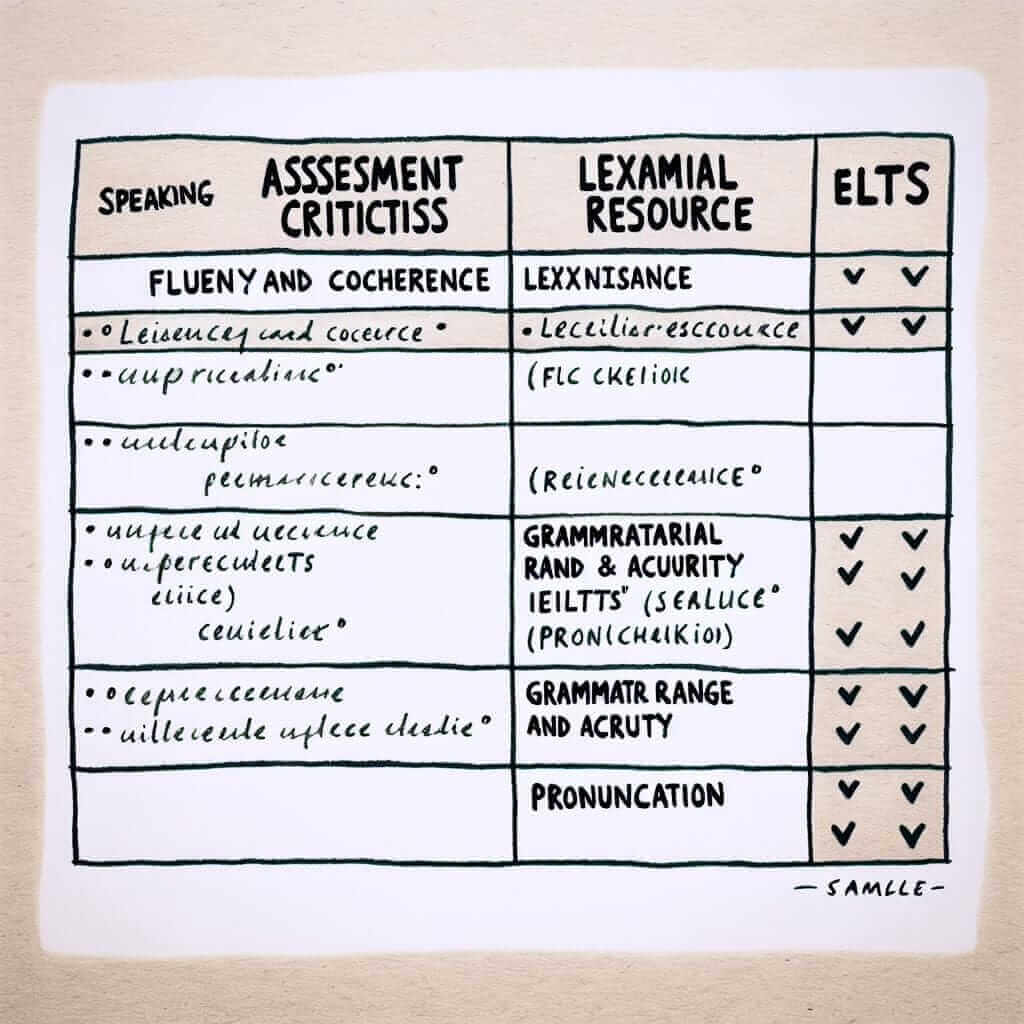As an IELTS instructor with over 20 years of experience, I’ve witnessed firsthand the transformative power of effective feedback in boosting speaking scores. Many students underestimate the importance of understanding and utilizing feedback to refine their skills. This article serves as a guide to navigating IELTS speaking feedback, enabling you to unlock your full potential and achieve your desired band score.
Understanding the Importance of IELTS Speaking Feedback
IELTS speaking feedback is much more than just a score or a few scribbled comments. It’s a roadmap to understanding your strengths and weaknesses, providing valuable insights into areas needing improvement. Think of it as a personalized guide tailored to your speaking abilities.
What does IELTS speaking feedback tell you?
IELTS examiners assess your speaking performance based on four key criteria:
- Fluency and Coherence: This refers to your ability to speak smoothly and clearly, connecting your ideas logically.
- Lexical Resource: This assesses the range and accuracy of your vocabulary.
- Grammatical Range and Accuracy: Examiners look for your ability to use a variety of grammatical structures correctly.
- Pronunciation: This evaluates your ability to be understood, taking into account aspects like individual sounds, intonation, and stress.
Your feedback will generally provide an indication of your performance in each of these areas, highlighting both positive aspects and areas for development.
How to Effectively Use IELTS Speaking Feedback
Receiving feedback is only the first step. The key to maximizing your score lies in actively engaging with it and implementing changes based on the insights provided.
1. Deconstruct the Feedback
Avoid the temptation to simply glance at the overall score. Take time to carefully analyze each criterion. Look for patterns in the feedback. Are there recurring comments about a specific area, such as vocabulary or grammar?
2. Seek Clarification
Don’t hesitate to ask your teacher or an IELTS expert for clarification on any feedback you don’t fully understand. Understanding the nuances of the feedback is crucial for effective improvement.
3. Develop a Targeted Action Plan
Based on your feedback, create a personalized study plan focusing on the areas needing the most attention.
- Fluency and Coherence: Practice speaking spontaneously on various topics. Record yourself and analyze your speech for hesitations and logical flow of ideas.
- Lexical Resource: Expand your vocabulary through reading and listening activities. Make use of vocabulary lists and flashcards, focusing on words relevant to common IELTS topics.
- Grammatical Range and Accuracy: Review grammar rules and practice using different sentence structures. Seek feedback on your written and spoken English to identify and correct recurring errors.
- Pronunciation: Focus on areas where your pronunciation may be hindering understanding. Listen to native speakers and imitate their intonation and rhythm.
4. Practice, Practice, Practice
Implementation is key. The more you practice, incorporating the feedback you’ve received, the more natural and confident your speaking will become. Find opportunities to engage in English conversations, participate in mock speaking tests, and record yourself to track your progress.
Example of IELTS Speaking Feedback and How to Use It
Let’s imagine you received the following feedback:
- Fluency and Coherence: You speak at a good pace but sometimes hesitate to find the right vocabulary. Work on improving your ability to paraphrase.
- Lexical Resource: You use a good range of vocabulary but could benefit from using more idiomatic language.
- Grammatical Range and Accuracy: Your grammar is generally accurate but you occasionally make mistakes with verb tenses.
- Pronunciation: Your pronunciation is clear and easy to understand.
Actionable Steps:
- Vocabulary: Create flashcards with synonyms and related words to improve paraphrasing skills. Study lists of idioms and practice incorporating them into your speech.
- Grammar: Focus on the specific verb tenses where you tend to make mistakes. Review the rules and complete practice exercises to solidify your understanding.
- Fluency: Practice speaking prompts for 1-2 minutes at a time, focusing on maintaining a consistent flow and using paraphrasing techniques when needed.

Conclusion
Mastering IELTS speaking feedback is an iterative process of understanding, analyzing, and implementing changes to refine your speaking abilities. By actively engaging with your feedback, developing a targeted action plan, and remaining persistent in your practice, you’ll be well on your way to achieving the IELTS score you deserve. Remember, feedback is not a judgment of your abilities but rather a valuable tool to unlock your full potential.